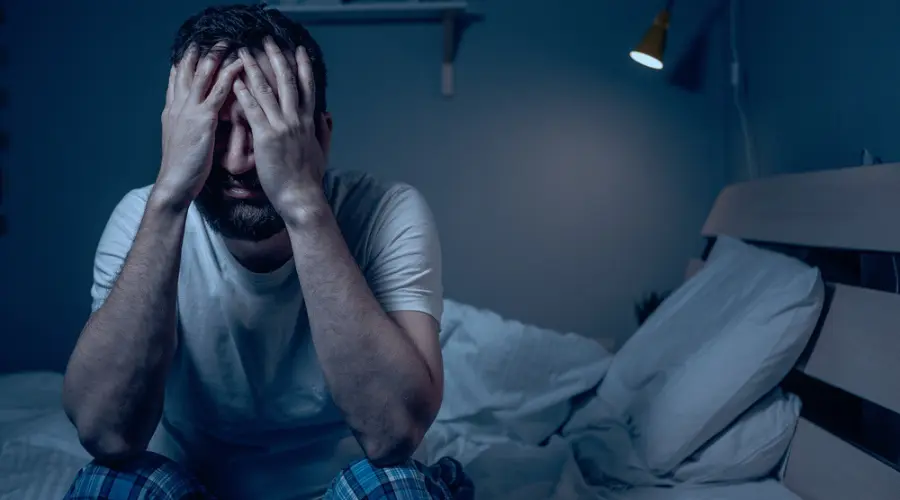Treatment Support for Young Adults to Transition to Responsibility
Failure to launch programs are rolling out at mental health facilities around the area. The term “Failure to Launch Syndrome” refers to young adults, 18 and over, who are entering adulthood but are ill-equipped to thrive.
Some don’t have the life skills training and move back home “temporarily,” which morphs into an extended period. Others have underlying mental health issues or substance misuse issues that may hold them back.
Catalina Behavioral Health is a Joint Commission-accredited mental health treatment center in Tucson, Arizona. Our failure to launch programs help young adults 18+ struggling with mental health disorders address their underlying issues and give them the self-esteem for transitioning into independent adulthood.
Please join us to learn more about how our evidence-based treatments and supportive environment can encourage independence for the young person struggling to fully participate in adulthood.
Confidential Trauma and Mental Health Assessment
Understanding the Young Adult With Underlying Mental Health Issues
Failure to Launch Syndrome is a figure of speech, not officially a diagnosis or listed in the DSM-5. Still, mental health professionals recognize certain behavioral patterns that often present when a young adult fails to launch.
These behaviors occur in many young adults with mental illnesses, such as:
- Depression
- Anxiety or panic attacks
- Bipolar disorder
- Substance abuse issues
- Personality disorders
- Trauma
We use evidence-based treatments to help young adults experiencing failure to launch overcome their low self-esteem.
Proven Treatment Methods for Failure to Launch Syndrome

Here are proven treatment plans that can help young adults develop confidence and overcome mental health problems
Individual Therapy for Young Adults
One-on-one therapy is an essential component of failure to launch programs. Clients cannot develop the necessary skills to live independently until they solve the puzzle of what’s holding them back from success.
Some treatment methods our therapists will often rely on include:
- Cognitive Behavioral Therapy
- Dialectical Behavior Therapy
- Motivational Interviewing
- Coping and Life Skills Training
Young adults in the program work with a licensed mental health treatment professional to address root causes and develop strategies to move forward.
Family Therapy for Families of a Struggling Adult Child
It’s painful to watch a loved one struggle, especially for parents or siblings. Our dedicated team can bridge the chasm between failure to launch program participants and their families. Many parents have difficulty communicating with the young adult. They view them as children and feel uncomfortable letting go.
In some cases, neither the child nor the parents respect boundaries. The therapist leads discussions to create a robust sense of personal growth.
Group Therapy to Learn from Supportive Peers
Participants in failure to launch programs also receive therapeutic support in a group setting with their peers. Peer groups allow these young adults a chance to connect with others who have similar struggles and discuss strategies to overcome their problems. Together, our peer groups start to visualize a brighter future.
Failure to Launch Statistics: Young Adults Who Struggle

How big is the failure to launch issue? It’s a growing challenge for today’s young people.
Here are some statistics that highlight this alarmingly fast-growing trend:
- As of 2022, over 58% of young adults aged 18 to 24 still lived with their families.
- The young man is more likely to stay home, with young males up to age 34 proving less likely to have a job or be looking for one than their female counterparts.
- Young males up to age 24 have suicide rates more than 4 times that of young women.
- Men represent only 40% of students enrolled in college in the United States.
Some young adults do not have the emotional literacy skills needed to overcome failure and have a healthy, independent adulthood. Others need the proper life skills – financial management, managing day-to-day anxiety, and more. Either way, a clear need exists to address the failure to launch syndrome holistically to help these young adults.
Symptoms of Failure to Launch
Here are some of a young adult’s symptoms that suggest he or she has failed to launch:
- Inconsistent employment or lack of employment; no interest in job training or further education
- Substance abuse or addiction
- Fear of commitment
- No long-term plans
- Avoiding adult responsibilities
- Poor time management
- Feel overwhelmed quickly
- Lack of financial independence
- Emotionally reactive with no emotional coping skills
Our failure to launch program emphasizes addressing the mental illness that holds them back from developing the essential skills for independent living.
Risk Factors of Failure to Launch

Understanding failure to launch means recognizing the risk factors that can reduce a young adult’s ability to live independently. Some of these factors include:
- Mental health issues; as discussed earlier, mental illness is the most frequent cause.
- Too much family involvement in the teen years or enabling family members.
- Trauma or other harm to emotional well-being during childhood.
- Economic or social pressures, especially in young men.
Our failure to launch treatment programs take into account the unique lived experiences of each client and helps identify the mental health needs of each young adult.
By creating highly personalized treatment plans, we help young adults find self-confidence.
Get Accredited Treatment Programs at Catalina
Lucas Failed to Launch Until He Came to the Catalina Recovery Program
‘Lucas’ came to Catalina at his mom’s urging. In the months after his 18th birthday and high school graduation, he’d turned down a college scholarship, quit a part-time job, and stayed in his bedroom. He stayed in his room most of the time, napping or online gaming with his friends. His mother noticed that he rarely came out to eat with the family, and he’d started to neglect his hygiene.
His mother was frustrated by how Lucas had thrown away his future and all but became a shut-in. That turned into shock when Lucas eventually confessed he had become addicted to Xanax and took pills to sleep all day. Using gave him a reason to avoid going out with friends or joining his siblings in family time.
Fortunately, Lucas was still on his mother’s health benefits, which offered insurance coverage for depression and substance abuse, and Catalina Behavioral Health was within walking distance of their home.
Determining and Treating the Cause of FTL
Family members had always described Lucas as relaxed or chill. Growing up, he’d never corrected them or told them that he felt so low that it sometimes hurt. It took only a quick assessment for our clinician to realize that Lucas had depression; he’d been abusing Xanax to dull the pain.
Lucas had a medical detox at Catalina. With his supportive family at home, he was able to join the failure to launch program as an outpatient. His therapist helped him discover new ways of coping with the depression, and the Catalina doctor found the proper prescription to stabilize his depression.
After 30 days of treatment, Lucas had few cravings for Xanax and felt strong enough to leave the program. He goes to Narcotics Anonymous (NA) every week for ongoing support and continues to see a counselor twice a month.
With his depression managed, Lucas has found an excellent full-time job and is saving the money for a rental deposit for an apartment of his own.
Do Failure to Launch Programs Require Outpatient or Residential Programs?

Besides treatment for the underlying causes of failure to launch, counselors in both outpatient and inpatient settings will cover other life skills for failure to launch syndrome, including the following:
- Information on nutrition and eating a balanced diet
- The importance of regular exercise and how it supports both physical and mental wellness.
- How to cope with disappointment without anxiety or depression.
- Family involvement without conflict.
We work with young adults to help them gain the tools they need to feel secure in their recovery after an initial failure to launch.
Is Failure to Launch the Same as Peter Pan Syndrome?
While Peter Pan and failure to launch syndrome are similar, there are a few distinct factors that separate the two.
Failure to launch is a situation when young adults struggle with the progression from childhood to adulthood. They are capable of independent adulthood with some often-unidentified factor that holds them back. These can include mental or physical health issues, a lack of motivation, or fear of leaving their comfort zone.
On the other hand, Peter Pan syndrome is named for the fictional character who refused to grow up. It refers to a deeper issue in which young adults are emotionally or psychologically unable to complete transitioning to adulthood.
Either way, the young adult deserves the appropriate care necessary to learn to accept adult responsibilities.
Is Care for Failure to Launch Syndrome Covered by Insurance?

Mental Health Disorders and the Affordable Care Act
The ACA of 2010 requires insurance plans to provide coverage for mental illness, considering it an essential service and equal to physical health challenges. If the young adult entering the program has a mental health diagnosis, then the psychiatric care, including counseling and therapy, is likely covered.
An example of this is someone who needs drug or alcohol recovery and treatment so that they can move on to live a productive, successful life after achieving sobriety.
Life Skills Programs Are Not Mandated by the ACA
Most life skills programs, such as financial literacy, career readiness, or independent living sessions, are not considered part of mental health or recovery programs under the ACA. Insurance companies generally do not approve these treatments.
However, if the life skills training is deemed medically necessary as part of a mental health or recovery program, your Health Savings Account (HSA) may still be a viable way to cover the costs. It’s still a gray area, so your plan administrator should confirm if these programs are eligible.
The Insurance Is Confusing; Our Admissions Team Can Help
Catalina Behavioral Health is in-network with most employer health programs in Arizona. We also accept Arizona Health Care Cost Containment System (AHCCCS) and American Indian Health Program (AIHP) members.
Your well-being is our prime directive, and our care for you starts when you pick up the phone and call us for help with your insurance. Our admissions team has specific expertise in handling those confusing calls to your insurer.
You can count on our capable admissions team to contact your insurance program and learn the particulars of your coverage. Our goal is to help you get care with the lowest out-of-pocket expense.
Up To 100% of Rehab Costs Covered By Insurance
Call Catalina for Evidence-based Failure to Launch Programs
If you or your adult child lacks the life skills, confidence, or emotional resilience to live independently, our failure to launch programs can help. In just a few weeks, they will dig deep inside to discover what’s holding them back from enjoying a fruitful adult life.
If you have any questions about our failure to launch programs or feel ready to take that step, call us today.





